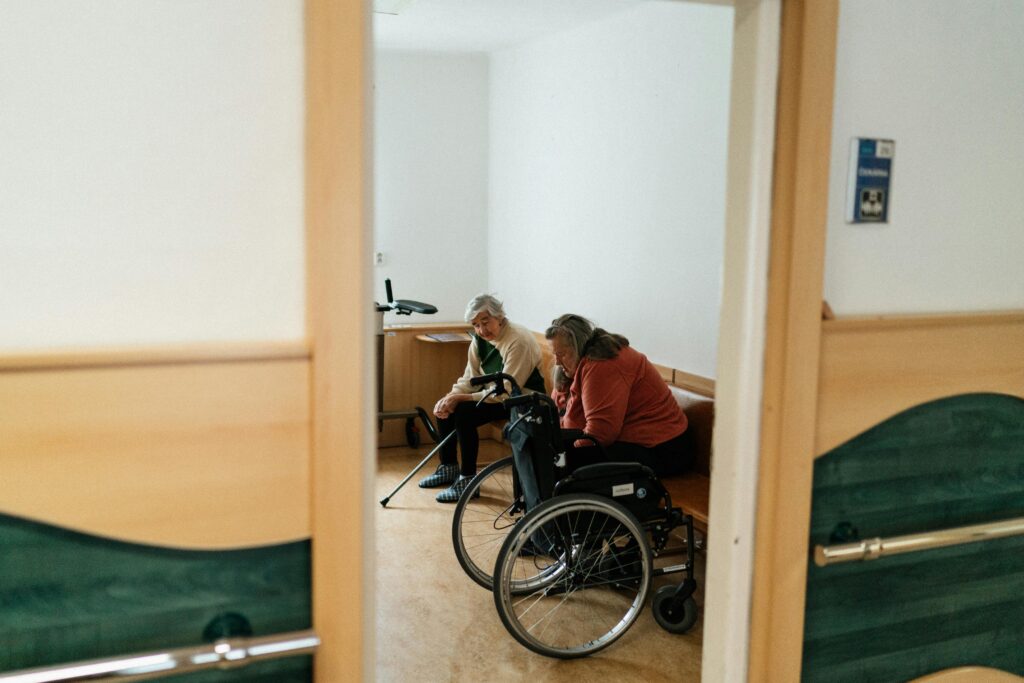As elder law attorneys at P&P Law Firm, we often see cases where neglect in nursing homes escalates into outright abuse. Families trust these facilities to care for their loved ones, yet some residents suffer from malnutrition, dehydration, and painful bedsores due to inadequate care. Understanding the legal differences between neglect and abuse is crucial in identifying when to take action. If you suspect a loved one is suffering from nursing home abuse in California, knowing the relevant laws and steps to take can help protect their well-being and hold negligent facilities accountable.
Understanding Nursing Home Neglect vs. Abuse
Neglect: A Breach of Duty
Nursing home neglect occurs when a facility fails to meet a resident’s basic needs, such as providing food, hydration, hygiene, and medical attention. Neglect may be unintentional, stemming from understaffing, poor training, or mismanagement, but it still poses serious health risks. Common signs include:
- Unexplained weight loss or malnutrition
- Dehydration
- Poor hygiene
- Bedsores (pressure ulcers)
- Untreated infections
- Medication errors
Abuse: Intentional Harm
While neglect may result from inaction, abuse involves deliberate harm. Nursing home abuse can be physical, emotional, financial, or sexual. It is often easier to recognize than neglect because it involves intentional acts such as hitting, verbal threats, or financial exploitation. Abuse may manifest as:
- Unexplained bruises or fractures
- Sudden behavioral changes (fear, withdrawal, agitation)
- Unexplained financial transactions
- Bedsores from prolonged neglect
Bedsores and malnutrition often indicate severe neglect, but when ignored or intentionally inflicted, they can be evidence of abuse. Understanding these distinctions is vital when seeking legal remedies.
California Laws on Nursing Home Abuse and Neglect
California has stringent laws to protect nursing home residents from neglect and abuse. The Elder Abuse and Dependent Adult Civil Protection Act (EADACPA) (California Welfare & Institutions Code § 15600) provides legal recourse for victims and their families. This law defines elder abuse as physical harm, neglect, financial abuse, abandonment, and isolation.
Under California Health and Safety Code § 1430(b), residents can sue nursing homes for violations of their rights, including improper care that leads to conditions like malnutrition and pressure sores. Additionally, federal laws such as the Nursing Home Reform Act (42 U.S.C. § 1396r) require facilities to maintain a standard of care, ensuring residents receive adequate nutrition, hydration, and medical treatment.
Recognizing Nursing Home Abuse Signs
Families must stay vigilant for warning signs of abuse and neglect. Common indicators include:
- Physical symptoms: Unexplained bruises, cuts, fractures, bedsores, weight loss
- Emotional changes: Depression, anxiety, sudden withdrawal
- Environmental red flags: Poor hygiene, unclean rooms, persistent odors
- Staff behavior: Evasive answers, frequent staff turnover, reluctance to allow visits
If a loved one exhibits any of these signs, immediate action is necessary to prevent further harm.
What to Do if You Suspect Nursing Home Abuse in California
1. Document Everything
Gather evidence, including photographs of injuries or unsanitary conditions, medical records, and witness statements. Keep a log of dates, staff interactions, and any concerning behaviors.
2. Report to the Appropriate Authorities
If you suspect abuse or neglect, report it immediately. Key agencies to contact include:
- California Department of Public Health (CDPH): Responsible for investigating complaints against licensed nursing homes. File a complaint online or call 1-800-236-9747.
- Adult Protective Services (APS): Provides emergency intervention for elder abuse cases. Contact your local APS office through 1-833-401-0832.
- Long-Term Care Ombudsman Program: Advocates for nursing home residents and can help mediate complaints. Call 1-800-231-4024.
- Local Law Enforcement: If immediate harm is suspected, call 911.
3. Seek Legal Assistance
Nursing home abuse cases can be complex, requiring experienced legal representation. P&P Law Firm specializes in elder law and can:
- Assess your case and advise on legal options
- Help file complaints with regulatory agencies
- Pursue civil lawsuits for compensation
- Advocate for changes in facility policies to prevent future abuse
California law allows victims and their families to seek damages for medical expenses, pain and suffering, and, in severe cases, punitive damages against the facility.
Holding Nursing Homes Accountable
Nursing homes are legally obligated to provide proper care. When they fail, families have the right to hold them accountable. Filing a legal claim can:
- Secure compensation for the victim’s suffering
- Encourage regulatory changes to improve conditions
- Prevent similar mistreatment of other residents
California has a two-year statute of limitations for personal injury claims related to nursing home abuse, so acting promptly is crucial.
Protecting Your Loved One from Future Abuse
Preventing nursing home abuse requires ongoing vigilance. Families can take proactive steps, including:
- Visiting frequently and at random times
- Engaging with staff and management
- Ensuring your loved one has access to independent medical evaluations
- Encouraging open communication with your loved one about their care
If a facility shows repeated signs of neglect, consider relocating your loved one to a better-rated nursing home.
Conclusion
Bedsores, malnutrition, and other signs of neglect can quickly escalate into life-threatening conditions. Understanding the legal distinction between neglect and abuse empowers families to take swift action. If you suspect nursing home abuse in California, report it immediately and seek legal assistance. At P&P Law Firm, we are committed to protecting the rights and dignity of elders. Contact us for a consultation to discuss how we can help ensure your loved one receives the care they deserve.


